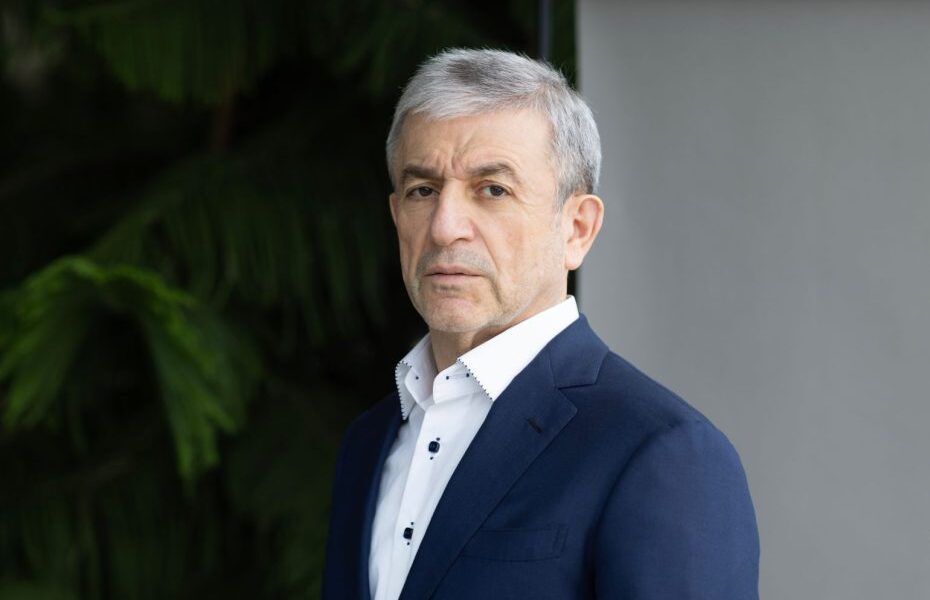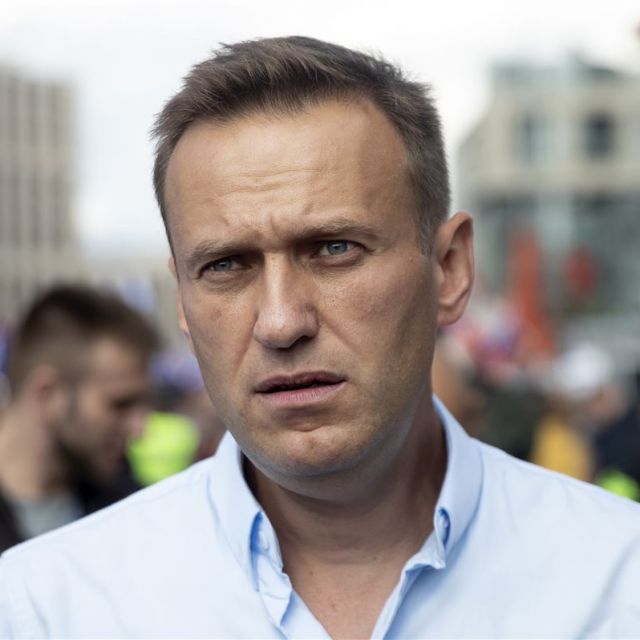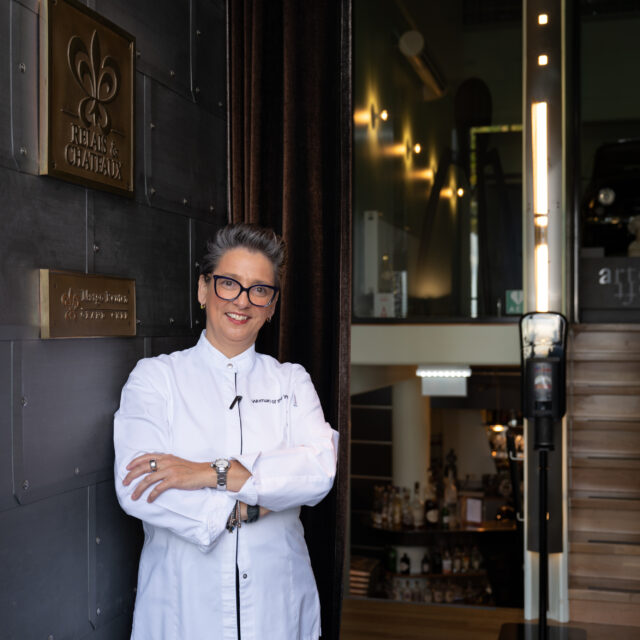EU Political Report has been privileged to hold an exclusive meeting with the successful international businessman from Georgia, Tamaz Somkhishvili, and this interview divided into two parts faithfully records a description of his career.
Part One – The Formative Years
Tamaz Valeryanovich Somkhishvili was born on 22 June 1957 in Tbilisi into the family of Valerian Amiranovich Somkhishvili and Lili Archilovna Melikishvili. He was the second of five children. The first three children were boys: Jemal, Tamaz, and Zurab, who were born a year apart in 1956, 1957, and 1958. In 1962, the fourth boy, Anzor, was born, and in 1966, a girl, Lali, completed the family.
Tamaz’s family belongs to an ancient Georgian lineage whose history in Tbilisi begins in 1935, when Tamaz’s grandfather, Amiran Somkhishvili, bought land in the Elia area, in one of Tbilisi’s historic neighbourhoods. The grandfather Amiran, built the house together with Tamaz’s grandmother, Mariam Kavtaradze.
“My father Valerian was 5 years old when they moved into a new house built by my grandfather,” says Tamaz. “Later, the house was renovated and expanded to meet the needs of the growing family. When my father married, Amiran allocated two rooms with a separate entrance for him. In one of the two rooms there was a hallway, a kitchen, and a laundry area which transformed into a bedroom for my parents and sister at night, while the second room served as a bedroom where the four brothers slept. Living conditions were difficult as there was no water supply in the house, so we had to walk 300 metres from the house for clean water. Running cold water was only installed when I was six.”
“My father worked as a shoemaker in Russia and Ukraine, to earn money for the family. We always eagerly anticipated his return home. He didn’t visit the family often, mainly on New Year’s Day and during the November and May holidays. In the summer, the family travelled to see him.”
Q: What are the key lessons you learned from your parents?
A: My parents taught me from childhood to be friendly with each other and to be honest and loyal to people close to me. Caring and love for those close are the main values that I have carried with me throughout my life. I believe that I inherited the following traits from my parents. I take everything to heart like my mother and care for my loved ones like my father.
After graduating from school, Tamaz Somkhishvili entered a bachelor’s programme at the technology faculty of a culinary arts college, from which he graduated with honours through an accelerated program after serving in the army. “I still use the knowledge gained at that time, primarily with respect to the aesthetics and physiological value of nutrition.”
In 1980, Tamaz enrolled in the Tobolsk Pedagogical Institute in the faculty of physics and mathematics from which he transferred in his fourth year to Tyumen State University in the faculty of finance and credit. The knowledge gained from these years later proved to be very useful for conducting business. In 2002, Tamaz defended his doctoral thesis on the topic “Conditions and Sources of Financing Investments in the Development of the Oil Industry” at the National Academy of Economics and Public Administration under the President of the Russian Federation in Moscow.
In the autumn of 1975, during his second year at the technology faculty of the vocational culinary school, Tamaz was called up for military service. He subsequently went to serve alongside his older brother Jemal, who had completed his studies at the faculty of chemistry of the vocational school.
For the first six months, the brothers served at the Artillery Bootcamp in Chernovtsy, Ukraine. Tamaz was to be assigned to the sports company after winning a sambo (martial arts) competition in Ukraine, but he refused this option in order to continue serving with his brother. After that, the brothers were sent to serve in Czechoslovakia, where the older brother was appointed deputy platoon commander while Tamaz was appointed squad leader. As a graduate of the culinary college, Tamaz was offered the position of head chef in the officers’ mess.
“I declined this,” says Tamaz, “Because I came to serve in the army, not to cook. Most of my military service was spent at the training range. The army taught me many useful skills. During my two years of service, I grew in stature to become a fully grown independent man and could stand up for myself.”
The director of the culinary college that Tamaz graduated from encouraged him to participate in a prominent Komsomol construction project at the time and embark on a Komsomol trip to Siberia, specifically to the Tyumen region. His task was to organise the food and essential goods supplies for the workers involved in the construction of the Urengoy-Pomary-Uzhgorod main gas pipeline.
“This project presented a potentially lucrative opportunity ranging from six hundred to fifteen hundred rubles per month, depending on the nature of the work and specialisation,” says Tamaz. “In October 1978, together with my childhood friend and classmate Givi Guishvili, we traveled to Tyumen, where we were assigned to the Uvat district at the Demyanskoe station in the taiga forest along the pipeline construction route to Chebuntan.”
“There, I began my career in the labour procurement department where I quickly rose to become the director. Once a week, I flew by helicopter to Tobolsk and submitted requests for supplies required for the gas pipeline workers: food, clothes, building materials, etc. In a short period, I made valuable connections across various supply bases (commercial, food, industrial goods, construction materials), which were important during the Soviet era.”
“The living conditions during the construction of the gas pipeline were very harsh; in winter, the temperature would drop to minus 50 degrees Celsius, and soon, only two of us remained from the original team: myself and Beridko Tavshavadze.”
“I suggested moving to Tobolsk, where I got a job as an administrator at a restaurant called “Irtysh,” working for an acquaintance of mine Nikolay Doev, while Beridko found a job at a beer hall. While working for Doev, I met Alexander Sheller, who was then managing the city’s most successful new café-restaurant, “Vstrecha.” In 1981, together with Alexander Scheller, I opened the first bar in Tobolsk. At the end of 1982 I started work as manager of the restaurant “Druzhba.”
Money was always hard to come by. Tamaz Somkhishvili looked for ways to earn a living to support his family and took on any job available. Prior to the 1980 Olympics in the Soviet Union, Olympic symbols appeared everywhere. Tamaz, with an eye for beautiful clothing, trusted his business instincts and decided to organise the production of shirts with Olympic emblems. “To set up the shirt production operation, I needed to file for a patent. In no time, a patent was secured under the name of my friend’s father, a participant in the Second World War. After making arrangements with tailors, I purchased a cutting machine and an overlock sewing machine, and bought calico and colourful fabrics in Moscow. The shirts were immensely popular so the venture proved successful in Tyumen. In fact, I managed to earn as much as the value of three cooperative four-room apartments in Soviet times,” he says.
In 1984 Tamaz’s father Valerian Amiranovich came to Tyumen to the regional hospital for a checkup. Tamaz arrived to visit him in his personal car – a new model six Zhiguli. While driving back from Tyumen to Tobolsk in the rain, near the village of Zashchitino, when turning a corner, Tamaz’s car hit a pothole on the side of the road. The car skidded while Tamaz tried to steer, and he ended up crashing into an oncoming dump truck. Tamaz suffered severe damage to his cervical vertebrae, but fortunately recovered quite quickly which he attributes to his fitness and athletic training. “This was the only sick leave I took in my entire life,” says Tamaz, “and after my recovery, the head of the administration of the Uvat district of the Tyumen region, Yuri Olegovich Svyatsekevich, invited me to head the public catering department.”
Q: Where did your first big break come from for development of an entrepreneurial career?
A: The late 80s saw a period of restructuring in the Soviet Union, and in 1987, a package of resolutions was adopted allowing for the establishment of cooperative businesses. I received an offer from Arkady Yelfimov, chairman of the Tobolsk City Executive Committee, to set up private cooperatives. This is how the trading and purchasing cooperative and restaurant ‘Kolkhida’ came into being.
In order to supply the cooperative, two Kamaz trucks with refrigerators were purchased to transport melons, fruits, and vegetables from the Central Asian republics, as well as berries and fish from Siberia. Soon after, I moved to Tyumen, where I purchased a new restaurant called “Druzhba” opposite the bus station on Permyakov Street.
Quickly establishing the business and realising that the restaurant’s earning potential was limited by the number of seats, I began to think about how to increase revenue. I decided to transform the restaurant into a pastry shop specialising in the production of cakes, primarily focusing on the popular “Ptichye Moloko” (Bird’s Milk) cake. Being a food technologist by training, I realised that pastry production would be a profitable business. Despite the shortage of products available only with ration cards – such as sugar, butter, and eggs – I took the risk of converting the restaurant hall into a bakery. My brother Anzor became the manager of the new enterprise. Having bought the required equipment for the new production facility, the question arose: where to get sugar.
At the Ministry of Trade of Ukraine in Kyiv I negotiated and contracted for supplies of sugar, but to comply with formalities, a letter from the Main Trade Administration of the Tyumen region would be required. So, I flew to Tyumen and, after three days, received the necessary letter from the Main Trade Administration of the Tyumen region. I then returned to Kyiv, held meetings with the directors of sugar factories across Ukraine, who had received directives from the Ministry of Trade of Ukraine for the shipment of sugar to my cooperative enterprise “Druzhba,” and I secured 5,000 tons of sugar. Warehouses in Tyumen and the Sverdlovsk region were rented to store the huge volumes of sugar. Thus, a new confectionery shop was opened in Tyumen where the excellent Bird’s Milk cake was prepared. The delicacy was in great demand so revenue poured in. I worked nonstop, especially enjoying Sundays when no one disturbed me or distracted me from my work.
(To be continued in part two)




